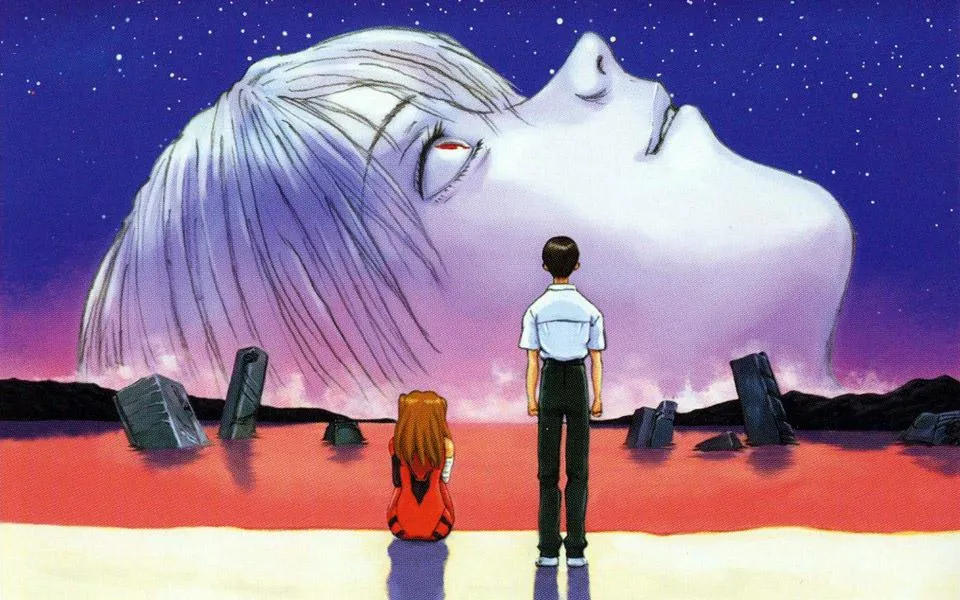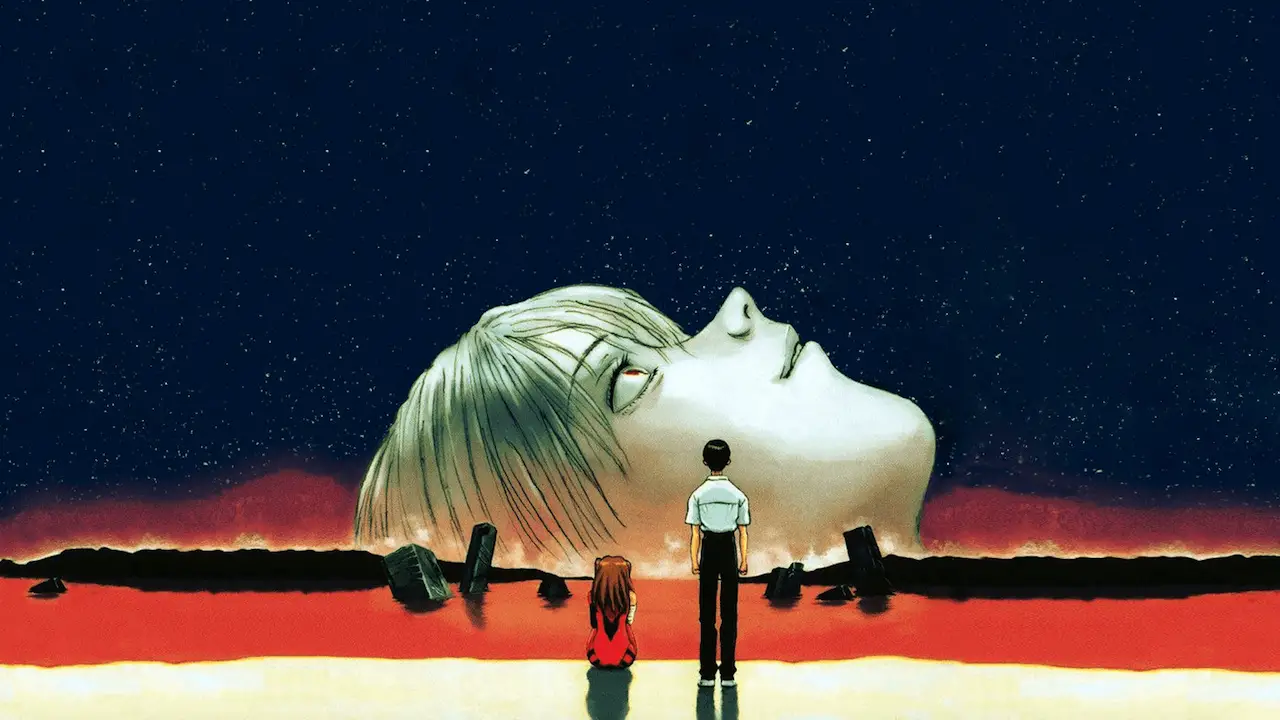Table of Contents
Introduction: Understanding the End of Evangelion
“End of Evangelion explained” offers a deep dive into the complex layers of this iconic film that serves as both a conclusion and a critical examination of the series. Released in 1997, Shinji Ikari’s journey confronts profound questions surrounding identity, existence, and the human experience.
The narrative weaves together psychological concepts and philosophical queries that resonate with audiences long after the credits roll. By exploring the depths of the human psyche and the quest for connection, the film prompts viewers to reflect on their own understanding of reality and relationships.
As we navigate through the intricate storytelling, visual artistry, and thematic elements, we aim to unravel what makes “End of Evangelion” a thought-provoking masterpiece that continues to challenge our beliefs and perceptions.

The Psychological Struggles: Exploring Identity and Existence
The Search for Self
In The End of Evangelion, the characters undergo profound psychological conflicts that resonate deeply with the audience. At the core of these conflicts is an exploration of identity and the struggle to define oneself in an increasingly chaotic world. Shinji Ikari, the film’s protagonist, embodies this search for self. His journey is marked by moments of intense self-doubt and despair, as he grapples with feelings of inadequacy and alienation.
The film delves into the concept of self-identity, highlighting how societal expectations and personal experiences shape one’s perception of who they are. Shinji’s reluctance to accept himself mirrors the struggles many face in reality. The message is clear: understanding one’s identity is a painful yet necessary journey.

The Isolation of Existence
Another prominent theme in The End of Evangelion is the isolation that comes with existence. The characters inhabit a world filled with longing and disconnection, reflecting the existential anxieties many individuals experience in their own lives. As the Human Instrumentality Project unfolds, the film suggests that to truly connect with others, one must confront their own loneliness.
Each character’s psychological struggles reveal the fear of intimacy and vulnerability. Rei Ayanami’s enigmatic existence raises questions about humanity and the essence of being. She serves as a representation of the yearning to connect while simultaneously embodying detachment. Through Rei and others, the film poses important philosophical questions: Can one ever truly understand another person? Is connection worth the risk of pain and rejection?
The Burden of Expectations
The film also addresses the heavy burden of expectations—both external and internal. Characters like Misato Katsuragi and Gendo Ikari are portrayed in their attempts to fulfill roles imposed by society, while simultaneously battling their own demons. Misato’s struggle to balance her professional duties with her personal desires illustrates the chaos often accompanying the quest for fulfillment.
Gendo, on the other hand, represents a warped vision of paternal expectation and ultimate control. His relentless pursuit of his goals leads to devastation—not just for himself, but for those around him. The film suggests that these expectations can lead to a disintegration of the self, causing individuals to lose sight of who they truly are. Each character’s journey ultimately encapsulates the essence of psychological struggle, making The End of Evangelion a profound commentary on human existence.
The Philosophy of Human Connection: Solitude vs. Togetherness
The Nature of Solitude
In The End of Evangelion, solitude emerges as a powerful motif that connects with the characters’ struggles against the chaos of their existence. Each protagonist grapples with their own sense of isolation, often exacerbated by the harsh realities of the world they inhabit. This solitude reflects a profound psychological condition, showcasing how the characters retreat into themselves as a protective mechanism against the emotional pain of their relationships.
Shinji Ikari, the series’ protagonist, exemplifies this internal battle. Throughout the film, he oscillates between yearning for connection and succumbing to the fear of intimacy. His journey illustrates the human condition, where solitude can serve as both a refuge and a prison. As viewers, we witness the detrimental effects of isolation manifesting in his indecision and despair. Ultimately, The End of Evangelion explores how isolation can lead to a stunted emotional development, trapping individuals in an abyss of their own making.

The Quest for Togetherness
Counterbalancing the theme of solitude is the profound need for togetherness. Characters such as Rei Ayanami and Asuka Langley Soryu personify this struggle, navigating their own relationships while confronting the broader implications of human connection. Asuka, in particular, embodies the fear of being vulnerable and the desperate desire to be recognized and validated by others.
The film’s climax forces characters into intense confrontations with themselves and each other. The scenario challenges the notion that closeness can be achieved without confronting one’s own fears. In scenes filled with emotional intensity, individuals confront their own pain and the fear of rejection while simultaneously longing for acceptance and understanding. This duality illuminates the intricate dance of human relationships, suggesting that genuine connection requires not just the blending of souls, but also the willingness to expose one’s own vulnerabilities.
The Synthesis of Solitude and Togetherness
To understand the film more profoundly, it is essential to recognize that solitude and togetherness are not opposing forces but rather facets of the same psychological spectrum. The End of Evangelion doesn’t offer a clear resolution to this conflict; instead, it highlights the complexity of human experience. It suggests that true meaning lies not solely in the immersion of togetherness but also in the confrontation of our own solitude.
Characters ultimately learn that they cannot escape their individual selves while pursuing connection. The struggle between embracing one’s own existence and reaching out to others serves as a central theme, forcing viewers to reflect on their own relationships. This blend of themes invites a richer interpretation of the film, urging audiences to contemplate the intricacies of the human psyche in the framework of loneliness and love.
The Concept of Instrumentality: Evolution or Destruction?
The Nature of Instrumentality
In Neon Genesis Evangelion: The End of Evangelion, the concept of Instrumentality emerges as a pivotal moment that raises profound questions about human existence. Instrumentality represents a transformative process that aims to merge individual consciousnesses into a singular entity. This idea is predicated on the notion that by erasing the barriers between individuals, humanity can achieve a state of collective understanding and unity.
However, this proposed evolution is interspersed with the haunting fear of destruction. By stripping away individuality, Instrumentality is presented as a paradox: is this merging of souls an act of salvation or a descent into oblivion? The film challenges viewers to ponder the implications of losing one’s self for the sake of communal unity. The characters grapple with their desires for connection and the inherent loneliness that comes with their conscious existence.

The Psychological Implications
The psychological ramifications of Instrumentality run deep, resonating with theories from existential psychology. Characters like Shinji Ikari reveal the internal struggle between the desire for acceptance and the fear of vulnerability. As the line between reality and the Regressor’s vision blurs, the film illustrates the fundamental human conflict—connecting with others while safeguarding one’s identity.
In the crescendo of the film, viewers witness characters confront their truths and insecurities, symbolizing a broader existential crisis. “To be alone is to suffer,” echoes throughout their journeys, prompting a fundamental question: does the collective existence offered by Instrumentality truly alleviate solitude? Or does it merely transform the nature of suffering from personal isolation to a shared existential void?
Philosophical Perspectives: The Dilemma of Choice
Philosophically, Instrumentality invites a deeper inquiry into free will and existential authenticity. The film places immense importance on choice, emphasizing that while the promise of unity may seem alluring, the essence of being human lies in the choices we make. By surrendering the ability to choose, characters are faced with a critical dilemma: are they willing to trade their autonomy for a facade of security?
This is further complicated by the idea of meaning-making. Rather than offering clarity or resolution, the concept of Instrumentality encourages viewers to grapple with the ambiguity of existence. Is it not in the moments of struggle, choice, and individual experience that we find our true selves? The End of Evangelion posits that confronting the abyss of existence, with all its chaos and uncertainty, is a necessary aspect of the human experience.
In this psychological and philosophical landscape, the essence of End of Evangelion explained is not merely in understanding the mechanics of Instrumentality, but in engaging with the profound implications it has for our understanding of existence itself.
Visual and Narrative Techniques: Artistry in Storytelling
The Power of Imagery
Neon Genesis Evangelion: The End of Evangelion is a masterclass in visual storytelling. From its haunting landscapes to its emotionally charged character close-ups, every frame serves a purpose beyond mere aesthetic appeal. The film’s striking visuals allow for a deep exploration of the characters’ psyches, reflecting their inner turmoil and existential struggles.
One particularly effective technique is the use of color. The palette shifts from vibrant hues to stark monochromes, often mirroring the emotional state of the characters. For instance, as Shinji grapples with feelings of isolation and despair, the once colorful settings transform into desolate environments, amplifying his sense of abandonment. This visceral approach shapes the audience’s experience, making abstract concepts tangible.

Fragmentation and Surrealism
The narrative structure of The End of Evangelion is intentionally fragmented, mirroring the chaos and confusion experienced by the protagonist, Shinji. This nonlinear storytelling challenges traditional narrative conventions, inviting viewers to piece together the plot through a series of disjointed scenes. The use of surreal imagery—such as iconic scenes depicting giant limbless bodies or metaphysical landscapes—encourages audiences to confront their own existential anxieties.
In this manner, the film becomes a psychological labyrinth, pushing viewers to question the nature of reality and their place within it. The dreamlike sequences function as a narrative device that breaks down the barriers between the internal and external worlds, effectively illustrating the characters’ emotional landscapes.
Themes of Identity and Connection
At its core, The End of Evangelion explores the profound themes of identity and connection, employing both visual and narrative techniques to deepen these explorations. Shinji’s struggle with self-acceptance is visually represented through the use of mirrors and reflections, symbolizing his fractured self-image. Scenes of introspection compel viewers to confront the characters’ fears of rejection, alienation, and the longing for human connection.
Moreover, the film employs symbolism, such as the repeated motif of the “Instrumentality Project,” which serves as both a literal and metaphorical mechanism for exploring the potential for human unity and individuality. Through these artistic choices, the film intricately weaves a narrative that not only entertains but also provokes profound philosophical questions about existence, making the End of Evangelion explained a journey into the depths of the human psyche.
These innovative techniques invite the audience to grapple with their interpretation of the story, encouraging multiple viewings to uncover layered meanings.
Book Recommendations: Exploring Themes Beyond the Screen
To delve deeper into the themes presented in Neon Genesis Evangelion: The End of Evangelion, consider exploring these thought-provoking books that touch on psychology, philosophy, and the human condition.
1. “Man’s Search for Meaning” by Viktor E. Frankl
This profound work explores the pursuit of meaning amid suffering, a central theme reflected in The End of Evangelion. Frankl, a Holocaust survivor and psychiatrist, discusses how individuals can find purpose even in the bleakest circumstances.
Buy “Man’s Search for Meaning” here
2. “The Myth of Sisyphus” by Albert Camus
In this existential essay, Camus examines the absurdity of life, echoing the struggles faced by the characters in The End of Evangelion. His exploration of rebellion against the meaningless provides a philosophical lens through which to interpret the film’s ending.
Buy “The Myth of Sisyphus” here
3. “The Interpretation of Dreams” by Sigmund Freud
Freud’s seminal text on the unconscious mind unlocks the complexities of human emotions and thoughts, paralleling the psychological turmoil depicted in The End of Evangelion. This book is essential for understanding the inner workings of the characters as they confront their fears and desires.
Buy “The Interpretation of Dreams” here
4. “Existentialism is a Humanism” by Jean-Paul Sartre
In this accessible introduction to existentialist thought, Sartre discusses freedom, choice, and the essence of human existence. The themes of existential dread and the quest for identity resonate deeply with The End of Evangelion, as characters navigate their realities and impose meaning on their lives.
Buy “Existentialism is a Humanism” here
5. “The Society of the Spectacle” by Guy Debord
Debord critiques contemporary society’s obsession with images and media, a theme starkly relevant in The End of Evangelion. This work encourages readers to reflect on the nature of reality, perception, and the effects of mass media on individual consciousness.
Buy “The Society of the Spectacle” here
Conclusion: The Lasting Impact of the End of Evangelion
In conclusion, End of Evangelion is a profound exploration of the human psyche and the philosophical implications of existence. Through its complex narrative and striking visuals, the film challenges viewers to confront their own identities and the nature of human connection.
The themes covered in our exploration, from the depths of loneliness to the quest for unity, resonate with audiences long after the credits roll. By delving into the characters’ psychological struggles and the overarching concept of Instrumentality, we gain invaluable insights into our own lives.
As we consider the question of End of Evangelion explained, it becomes clear that this film is not just a story; it is an invitation to reflect deeply on our existence and the interconnectedness of humanity. The impact of End of Evangelion endures, prompting us to continually confront the abyss within ourselves and the world around us.
Take a look at all our in-depth reviews here.




